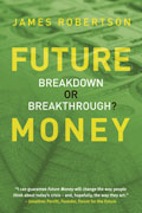 "The fact is that today’s professional understanding of how the money system works is still at a primitive stage. As we shall see, it parallels in significant ways the failure in pre-Copernican times to understand that the Earth goes round the sun, not vice versa.
"The fact is that today’s professional understanding of how the money system works is still at a primitive stage. As we shall see, it parallels in significant ways the failure in pre-Copernican times to understand that the Earth goes round the sun, not vice versa.
The message of this book is that a Copernican revolution in human understanding of how the money system works and how it ought to work is more and more urgently overdue. In the case of the money system, unlike the solar system, this revolution will not only be intellectual and scientific. It will also be a revolution in practice. This understanding goes far beyond that of the present conventional experts in money – practitioners and academics alike.
This new understanding can be summarised as follows. Money is a system of quantitative values – distinct, numerical currency values. How it works motivates people to live in some ways instead of others. As long as we allow it to work as it now does, it will continue to conflict with real-life human values. How it now encourages or compels almost everyone in the world to live is inevitably leading us towards a combined collapse of the interacting systems – ecological, social and economic – on which we depend. That is why reforming it will be necessary for our survival, though perhaps not by itself a sufficient condition of it.
Meanwhile, if unreformed, its workings will continue to frustrate all the well-meant efforts of active citizens, NGOs (non-governmental organisations) and government agencies, to deal with our present ills and problems – including worldwide poverty, environmental destruction, social injustice, economic inefficiency, and political unrest and violence within and between nations. Again, that is why failure to reform the world’s money system urgently and radically – that is to say, from its roots up – could bring on the self-destruction of our civilisation before the end of this century.
This book proposes a comprehensive set of reforms that would help to avoid that catastrophe."
Dit boek is gratis te downloaden van de site van James Robertson (als je je abonneert op zijn nieuwsbrief).

